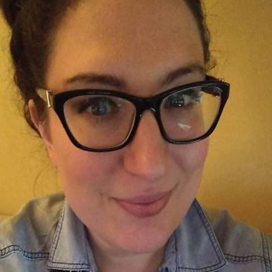Season 2
Supported Education Services
In this episode we speak to Amy Banko, MS, LAC, NCC, CPRP about Supported Education, an intervention that helps people living with serious mental health conditions to successfully graduate from academic programs. The model connects with college students with serious mental health conditions, to teach academic success skills and to offer support to help them graduate.
Hosts & Guests
Dr. Michelle Zechner
Amy Banko, MS, LAC, NCC, CPRP (Special Guest – See bio below)
Resources
Rutgers Integrated Employment Institute
https://iei.rutgers.edu/
SAMHSA EBP Toolkit
https://store.samhsa.gov/product/Supported-Employment-Evidence-Based-Practices-EBP-Kit/SMA08-4364
Boston University Higher Education Toolkit
https://cpr.bu.edu/wp-content/uploads/2011/09/Higher-Education-Support-Toolkit.pdf
University of Massachusetts – HYPE Program
https://www.umassmed.edu/hype/
VetSed Manual
https://www.va.gov/HOMELESS/docs/Center/VetSEd_Manual_Version_FINAL.pdf
First Episode Psychosis and Supported Education – NASMHPD
https://www.nasmhpd.org/sites/default/files/IssueBrief-SED.pdf
Takeaways From This Episode
Supported Education (SEd) was developed in the 1980s as an extension and adaptation of Supported Employment services. Before a person with a serious mental health condition (SMHC) can choose, get, or keep employment for a long-term vocational goal they often need to go back to school for additional training. SEd begins by helping the person to identify their long-term vocational goals and then supporting them to identify the program that best fits with their goals and needs.
Students with SMHC experience many barriers to graduating or matriculating from post-secondary programs like college and technical programs. SEd helps people living with SMHC to develop the needed skills to succeed in post-secondary education and to graduate from the program of their choice. Some examples of this include study skills, time management, motivation skills, strategies to maintain matriculation or use of a calendar.
Supporting students with SMHC in post-secondary settings helps them in their efforts for meaningful employment and establish a career, which can combat under or unemployment and contribute to lifelong financial stability. Meaningful employment is a social determinant of health which means that getting a post-secondary education and having a job reduces the likelihood that someone lives in poverty and improves their quality of life.
SEd shows promise in helping students to graduate from their programs, helping students experience improved relationships with other students and faculty, and participate more in campus activities. More research is needed, especially longer research that can explore the long-term impacts of SEd. A significant limitation to the model is that it has not been funded as a mental health service in all states.
Some of the innovations in the practice include a focus on specific populations. For example, there are new programs that are specific to veterans and people with first episode psychosis. There are also programs that combine Supported Education and Supported Employment to follow the person through the process.
Special Guest

Amy Banko, MS, LAC, NCC, CPRP
Lecturer, Integrated Employment Institute
Ms. Banko is a lecturer in the Department of Psychiatric, Rehabilitation and Counseling Professions at Rutgers. Ms. Banko is a teacher, trainer, and consultant at the Integrated Employment Institute at Rutgers where she facilitates trauma-informed, supported employment, and supported education training and technical assistance to enhance practitioner competencies and program outcomes. She co- developed the first mobile outreach Supported Education in New Jersey and has worked in this area for over 15 years. Ms. Banko has provided clinical services on multiple funded studies focused on post-secondary education and employment for individuals with mental health conditions. Additionally, Ms. Banko is a co-author of a best practice manual for providing supportive education to transition aged youth and young adults with mental health conditions. She’s a co-investigator of two federally funded studies on post-secondary education, Supported Education implementation, mental health conditions and trauma. Ms. Banko uses her lived experience of a mental health condition to inform her roles.
Ms. Banko uses her lived experience of a mental health condition to inform her roles as instructor, scholar and clinician.
Stay Connected
The Northeast & Caribbean MHTTC served New York, New Jersey, Puerto Rico, and the US Virgin Islands and was based at Rutgers, the State University of New Jersey, within the School of Health Professions, Department of Psychiatric Rehabilitation and Counseling Professions.
During this time period, the organization provided essential training, technical assistance, and resource dissemination to support and enhance the mental health workforce.
With funding from the Substance Abuse and Mental Health Services Administration (SAMHSA), the MHTTC collaborated with organizations and practitioners providing mental health services to enhance their capacity for delivering effective, evidence-based interventions.
This site is now part of the Northeast and Caribbean MHTTC ARCHIVE.
Rutgers, the State University of New Jersey
Department of Psychiatric Rehabilitation & Counseling Professions
675 Hoes Lane West
8th Floor
Piscataway, NJ 08854
Dr. Ann Murphy
murphyaa@shp.rutgers.edu
